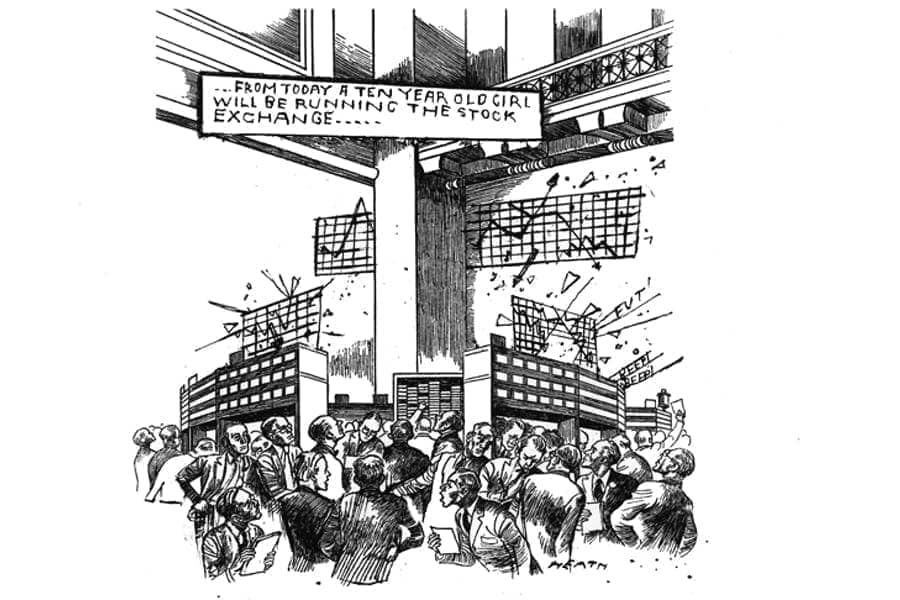It is one thing for western companies, funds, investment trusts and others to promise to divest from Russian assets. But what if the Russian authorities won’t let you? The Moscow stock market has failed to open for a fifth day running. Prior to its closure, it had already plummeted by a third after the invasion of Ukraine. Russian investments traded on external markets have continued to plummet during the closure: JP Morgan Russian Securities, an investment trust traded on the London Stock Exchange, plunged by another 15 per cent this morning to 101 pence – just one-eighth of what it was trading at last autumn.
Is that a bargain? ‘Buy on the sound of gunfire’, goes the old stock market adage. Well, maybe, if you are buying stocks in other world markets, which have also plummeted this week but where you can be reasonably sure that capitalism will continue, and where markets will surely recover to some kind of normality once the crisis has subsided. You might not even have to wait for the crisis to be over. You would have done yourself a big favour dipping into the market on 23 March 2020, after four weeks of a savage bear market provoked by Covid-19. The pandemic had hardly begun, yet that was the day that stock markets around the world bottomed out before recovering strongly.
But in Russia’s case, there is a very big risk that you will never see your money again – any of it. Will the Moscow stock market ever reopen, or will Russia revert to being a closed economy, with the assets of western investors seized by the Russian state – or, even worse, by Putin’s cronies?
Closing stock markets in the face of plunging prices is not a tactic restricted to Putin’s Russia. Wall Street was suspended three times during the rout in March 2020 – although only for 15 minutes at a time. But there is rather more going on in Russia than panic. Given Putin’s disregard for international opinion and his determination to respond to western sanctions, as well as his record in treating business figures who cross him, no investor in the Russian stock market can necessarily expect to recover any of their money.
Russia isn’t likely to revert to communism, but it is hard to see it returning, either, to being a normal capitalist economy where investors can buy and sell shares. It would take not just the removal of Putin from power but the emergence of a Gorbachev-style reformer to rebuild confidence in Russian investments. In the meantime, Russia looks like sliding the whole way into kleptocracy.







Comments